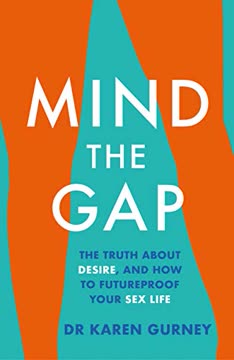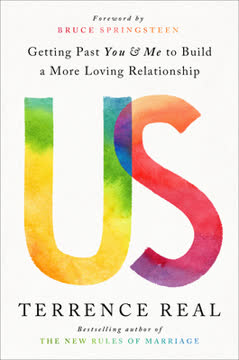Key Takeaways
1. Unrealistic Expectations Distort Our Sexual Perceptions
There aren’t many areas of science where we have got it so wrong for so long that gross inaccuracy has seeped into our collective psyche, but sex is one of them.
Cultural Misconceptions. Many of our beliefs about sex are shaped by culture, folklore, and media, rather than scientific facts. This leads to unrealistic expectations and dissatisfaction. The pervasive influence of these inaccurate narratives makes it difficult to have a clear understanding of what is normal or achievable in our own sex lives.
Historical baggage. Societal views on sex have been heavily influenced by religion, gender inequality, and fear of sexual urges. These historical perspectives continue to shape our attitudes and expectations, often leading to negative self-perception and judgment. For example, the idea that women should have lower sexual interest or that sex is primarily for procreation.
Challenging the Norm. It's crucial to question and challenge these ingrained misconceptions. Recognizing that many of our beliefs about sex are based on inaccurate or biased information is the first step toward developing a more realistic and fulfilling sexual life. This involves seeking out accurate information, engaging in open conversations, and rejecting societal pressures.
2. Society Shapes Our Sexual Scripts
How we see sex, including what is ‘normal’ and how women are expected to relate to sex, is a moveable feast, depending on the cultural context and dominant views of the time.
Social Norms. Societal expectations, or "sexual scripts," dictate how we should behave during sex. These scripts are heavily gendered and influenced by media, language, and cultural interactions. These scripts often prioritize male pleasure and perpetuate unrealistic ideas about female sexuality.
Impact of Scripts. These scripts can lead to feelings of inadequacy, pressure to perform, and a disconnect from our own desires. For example, the belief that penis-in-vagina sex is "real sex" can limit exploration of other pleasurable activities. Women may feel pressured to fake orgasms to conform to expectations.
Breaking Free. Recognizing and rejecting these unhelpful scripts is essential for reclaiming our sexuality. This involves challenging societal norms, prioritizing our own pleasure, and communicating openly with partners about our needs and desires. It also means being aware of how these scripts intersect with other aspects of our identity, such as race and culture.
3. Relationships: A Crucible for Desire
The truth is that great sex is cultivated, not ever present, but we need to understand how desire works and develop knowledge and skills regarding how to cultivate it.
Relationship Dynamics. The quality of our relationships significantly impacts our sex lives. Factors such as communication, intimacy, and power dynamics can either enhance or hinder sexual satisfaction. A healthy relationship provides a safe and supportive environment for exploring and expressing our sexuality.
Desire Discrepancy. Differences in desire are common in long-term relationships. How couples navigate these discrepancies is crucial for maintaining sexual satisfaction. Open communication, compromise, and a willingness to explore each other's needs are essential.
Cultivating Desire. Great sex is not something that happens spontaneously; it requires effort and cultivation. This involves understanding our own desires, communicating them to our partners, and creating a shared vision for our sexual relationship. It also means prioritizing time and energy for intimacy and connection.
4. The Brain: A Double-Edged Sword in Sex
This quality of being entirely alive in their bodies with no mental interference was the hallmark of great sex.
Mind-Body Connection. Our brains play a crucial role in our sexual experiences. They can either amplify or diminish arousal, pleasure, and desire. The ability to be present and focused during sex is essential for maximizing enjoyment.
Distracting Thoughts. Negative thoughts, self-criticism, and worries can disrupt sexual response. These thoughts often stem from societal pressures, past experiences, and insecurities. Learning to manage these thoughts is crucial for enhancing sexual satisfaction.
Mindfulness. Mindfulness techniques can help us become more aware of our thoughts and sensations during sex. By focusing on the present moment and letting go of judgment, we can enhance arousal, pleasure, and desire. This involves cultivating a non-judgmental awareness of our bodies and our experiences.
5. Responsive Desire: A Valid and Common Experience
It is no longer seen as a problem if women don’t feel like sex spontaneously.
Challenging Spontaneity. The idea that desire should always be spontaneous is a myth. Many women experience responsive desire, where arousal and desire emerge after sexual activity has begun. This is a normal and valid experience.
Receptivity is Key. Being receptive to sexual stimuli is crucial for triggering responsive desire. This involves being open to the possibility of sex, even if we don't initially feel desire. It also means creating a safe and supportive environment where we feel comfortable exploring our sexuality.
Breaking the Cycle. Recognizing and accepting responsive desire can break the cycle of waiting for spontaneous desire and feeling inadequate when it doesn't appear. This involves shifting our focus from the expectation of desire to the experience of arousal and pleasure.
6. Communication: The Cornerstone of Sexual Satisfaction
The key thing here is that having a good sex life is not about always needing to be on the same page, or wanting as much sex as your partner, but the success with which you navigate these differences.
Open Dialogue. Communication is essential for a fulfilling sex life. This includes talking about our desires, needs, and boundaries. It also means being able to discuss any challenges or concerns that arise.
Overcoming Barriers. Many factors can make it difficult to communicate about sex, including shame, embarrassment, and fear of judgment. Creating a safe and supportive environment is crucial for overcoming these barriers. This involves active listening, empathy, and a willingness to be vulnerable.
Negotiation. Sex is a negotiation. It requires ongoing communication and compromise. This involves being able to express our needs and desires, as well as being receptive to our partner's. It also means being able to say no and respecting each other's boundaries.
7. Prioritizing Sex: A Conscious Choice
Sex is more important to us as humans than we often give it credit for.
Making Time. In today's busy world, it's easy for sex to fall off the priority list. However, if we value our sexual relationship, we need to make a conscious effort to prioritize it. This involves scheduling time for intimacy, creating a relaxing environment, and minimizing distractions.
Beyond the Bedroom. Prioritizing sex also means nurturing our relationship outside the bedroom. This involves spending quality time together, engaging in meaningful conversations, and expressing affection. These activities can enhance intimacy and create a stronger foundation for sexual connection.
Challenging the "Shoulds." It's important to challenge the societal belief that sex should happen spontaneously and effortlessly. This belief can lead to feelings of guilt and inadequacy when sex doesn't "just happen." Instead, we need to embrace the idea that sex requires effort and intention.
8. Embrace Change: The Only Constant in Sexuality
The truth is that great sex is cultivated, not ever present, but we need to understand how desire works and develop knowledge and skills regarding how to cultivate it.
Lifelong Journey. Our sexuality is not static; it evolves over time. Changes in our bodies, relationships, and life circumstances can all impact our sexual desires and experiences. Embracing this change is essential for maintaining a fulfilling sex life.
Adaptability. The ability to adapt to these changes is crucial. This involves being open to new experiences, exploring different types of intimacy, and communicating openly with our partners about our evolving needs. It also means being willing to let go of old expectations and embrace new possibilities.
Seeking Support. When faced with significant changes or challenges, seeking support from a therapist or counselor can be helpful. A professional can provide guidance, tools, and strategies for navigating these transitions and maintaining sexual well-being.
9. Self-Compassion: The Foundation of Sexual Well-being
The title of this book, Mind The Gap, makes reference to the differences between how we think our sex lives should be (often based on unhelpful comparisons) and how our sex lives actually are, as well as the difference between what we need to know about sex and desire to have great sex and what most of us actually know.
Kindness and Acceptance. Self-compassion is essential for navigating the complexities of sexuality. This involves treating ourselves with kindness, understanding, and acceptance, especially when we fall short of our own expectations. It also means recognizing that we are not alone in our struggles.
Challenging Self-Criticism. Self-criticism can be a major barrier to sexual satisfaction. Learning to challenge these negative thoughts and replace them with more compassionate ones is crucial for improving our relationship with our bodies and our sexuality. This involves recognizing that we are worthy of love and pleasure, regardless of our perceived flaws.
Embracing Imperfection. Perfection is an illusion. Embracing our imperfections and accepting ourselves as we are is essential for cultivating self-compassion. This involves letting go of unrealistic expectations and focusing on what we can control: our attitudes, our actions, and our relationships.
Last updated:
FAQ
1. What is Mind The Gap: The Truth About Desire and How to Futureproof Your Sex Life by Dr. Karen Gurney about?
- Challenging sexual desire myths: The book debunks common misconceptions about sexual desire, especially the expectation of frequent, spontaneous desire in long-term relationships.
- Comprehensive look at desire: Dr. Gurney explores how desire actually works, emphasizing the roles of psychological, relational, and societal factors.
- Bridging knowledge and experience gaps: The title refers to gaps between societal expectations and real sexual experiences, as well as knowledge gaps about anatomy, pleasure, and gender inequality.
- Empowerment through understanding: The book aims to equip readers—especially women—with the knowledge and tools to take control of their sexual lives and sustain satisfaction over time.
2. Why should I read Mind The Gap by Dr. Karen Gurney?
- Correcting false beliefs: The book helps readers unlearn inaccurate ideas about sex and desire that often cause distress and dissatisfaction.
- Evidence-based guidance: It draws on the latest sex science and clinical experience, offering practical exercises and reflections for improving sexual well-being.
- Focus on women’s sexuality: Dr. Gurney addresses unique challenges women face due to gender politics, societal scripts, and biological factors.
- Relationship enhancement: Readers learn strategies to navigate desire discrepancies, improve communication, and nurture intimacy for a more satisfying sex life.
3. What are the key takeaways from Mind The Gap by Dr. Karen Gurney?
- Desire is responsive, not a drive: Desire often follows arousal and is influenced by context and receptivity, not just spontaneous urges.
- Relationship and societal context matter: Desire is shaped by relationship culture, communication, and societal messages about sex and gender.
- The brain’s central role: Attention, learning, and past experiences filter sexual stimuli, amplifying or inhibiting desire.
- Practical strategies included: The book offers actionable exercises, such as increasing sexual currency and practicing mindfulness, to enhance desire and satisfaction.
4. What are the most common misconceptions about sexual desire and sex discussed in Mind The Gap by Dr. Karen Gurney?
- Spontaneous desire myth: The belief that desire should be frequent and arise spontaneously is false; most people, especially women, experience responsive desire.
- Sex as a fixed drive: Desire is not a static biological drive but a biopsychosocial phenomenon influenced by context, relationship dynamics, and psychological factors.
- Monogamy and passion: The idea that monogamy naturally sustains passion or that long-term relationships inevitably become sexless is misleading.
- Penetrative sex as ‘real sex’: This narrow script sidelines women’s pleasure and ignores the diversity of sexual expression.
5. How does Dr. Karen Gurney in Mind The Gap explain the role of societal and cultural influences on sex and desire?
- Sexual scripts and gender roles: Society teaches implicit and explicit rules about how men and women should behave sexually, often privileging male pleasure.
- Media and porn impact: Media portrayals reinforce unrealistic expectations, such as quick, spontaneous passion and penetrative sex as the main event.
- Gender inequality: Patriarchal norms devalue women’s sexual pleasure, contributing to the orgasm gap and women faking orgasms.
- Intersectionality: Race, sexuality, age, and other identity factors intersect with gender to shape unique sexual experiences and challenges.
6. What is the ‘orgasm gap’ and how does Mind The Gap by Dr. Karen Gurney address it?
- Definition and statistics: The orgasm gap refers to the disparity where men orgasm about 95% of the time during heterosexual sex, while women orgasm only about 65% of the time, and even less in casual sex.
- Causes: The gap is due to sexual scripts that prioritize penetrative sex and sideline clitoral stimulation, not women’s anatomy or capacity.
- Impact on women: Many women blame themselves for not orgasming, reinforcing negative beliefs and dissatisfaction.
- Solutions offered: Dr. Gurney advocates for better knowledge of female anatomy, rejecting limiting sexual scripts, and fostering communication to prioritize mutual pleasure.
7. What is the circular model of sexual response by Rosemary Basson, as discussed in Mind The Gap by Dr. Karen Gurney?
- Desire follows arousal: Unlike linear models, Basson’s circular model posits that women often start from sexual neutrality and become receptive to sexual stimuli, leading to arousal and then desire.
- Multiple motivations for sex: Sex is often initiated for reasons other than desire, such as intimacy or emotional connection, which can then lead to sexual desire.
- Feedback loop: Positive sexual experiences increase emotional intimacy, which enhances receptivity and desire in the future, creating a reinforcing cycle.
- Relevance to women: This model normalizes responsive desire and helps women understand their own sexual motivation patterns.
8. What is “sexual currency” in Mind The Gap by Dr. Karen Gurney and why is it important?
- Definition: Sexual currency refers to the amount and quality of sexual interactions and flirtation between partners that build a sexual connection without necessarily leading to sex.
- Buffer against pressure: It helps couples maintain desire by creating a culture where sexual expression is frequent and not always linked to intercourse.
- Practical impact: Increasing sexual currency can improve feelings of being a sexual couple and facilitate smoother transitions into sexual activity.
- Enhancing satisfaction: It meets motivations for sex and helps sustain desire over time.
9. What are the ‘conditions for good sex’ according to Dr. Karen Gurney in Mind The Gap?
- Three-point triangle: Good sex depends on psychological arousal (erotic context and connection), physical touch (pleasurable stimulation tailored to individual preferences), and being present (mindfulness and focus during sex).
- Individual variability: Each person’s conditions differ and change over time; there is no universal ‘right’ way to experience sex.
- Interdependence: These conditions influence each other; for example, distraction reduces sensation, and unpleasant touch lowers arousal.
- Practical application: Mapping one’s own conditions helps identify what’s working or missing and guides communication with partners.
10. How does Mind The Gap by Dr. Karen Gurney explain the role of the brain in sexual desire and arousal?
- Physical arousal is automatic: The body responds reflexively to sexual stimuli, but the brain interprets these signals to generate desire.
- Attention and thoughts matter: Distraction, intrusive, or self-critical thoughts can inhibit desire by diverting attention from sexual stimuli.
- Mindfulness as a tool: Mindfulness meditation helps direct attention to positive sexual sensations and thoughts, increasing concordance between body and mind.
- Learning and memory: Past experiences and learned associations filter sexual stimuli, amplifying or inhibiting desire.
11. How does Mind The Gap by Dr. Karen Gurney suggest couples handle differences in sexual desire (desire discrepancy)?
- Normalize desire discrepancies: Differences in desire are common and not inherently problematic; understanding responsive desire helps reduce conflict.
- Reframe the issue: Desire discrepancy is a relational issue, not an individual’s ‘low desire’ problem.
- Increase sexual currency and communication: Building a culture of sexual connection and openly discussing sexual preferences can bridge desire gaps.
- Create low-pressure environments: Reducing expectations that every sexual interaction must lead to intercourse helps partners feel more comfortable and receptive.
12. What practical exercises and strategies does Dr. Karen Gurney recommend in Mind The Gap to futureproof your sex life?
- Reflection on motivations: Understanding personal and partner motivations for sex helps couples communicate needs and avoid sex driven by avoidance.
- Sexual currency overload experiment: Couples increase non-sexual sexual interactions (flirting, passionate kissing, suggestive texts) without pressure for sex to rebuild connection and desire.
- Mindfulness practice: A staged approach to mindfulness—starting with general practice, then focusing on genital sensation during solo and partnered sexual activity—improves attention and arousal.
- Prioritize and adapt: Treat sex as a priority, engage in self-expanding activities, and adapt to life changes to sustain connection and satisfaction over time.
Review Summary
Mind The Gap receives mostly positive reviews, with readers praising its informative content on female sexuality and desire. Many find it eye-opening and recommend it widely. The book challenges societal myths and offers practical advice for improving sex lives. Some readers note repetitiveness and editing issues, while others appreciate the accessible writing style. The book's focus on heterosexual relationships and its self-help approach surprises some readers. Overall, it's considered an important read for women and their partners, offering valuable insights into sexual psychology and relationship dynamics.
Similar Books
Download PDF
Download EPUB
.epub digital book format is ideal for reading ebooks on phones, tablets, and e-readers.










